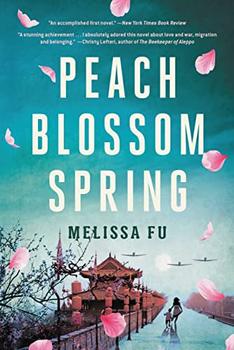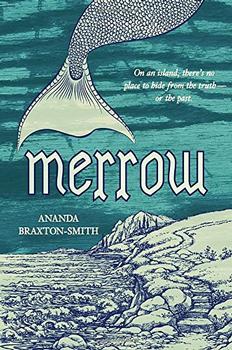Summary | Excerpt | Reading Guide | Reviews | Beyond the book | Read-Alikes | Genres & Themes | Author Bio

A Novel
by Yangsze ChooA sweeping historical novel about a dance-hall girl and an orphan boy whose fates entangle over an old Chinese superstition about men who turn into tigers, set in 1930s Malaysia.
Quick-witted, ambitious Ji Lin is stuck as an apprentice dressmaker, moonlighting as a dancehall girl to help pay off her mother's Mahjong debts. But when one of her dance partners accidentally leaves behind a gruesome souvenir, Ji Lin may finally get the adventure she has been longing for.
Eleven-year-old houseboy Ren is also on a mission, racing to fulfill his former master's dying wish: that Ren find the man's finger, lost years ago in an accident, and bury it with his body. Ren has 49 days to do so, or his master's soul will wander the earth forever.
As the days tick relentlessly by, a series of unexplained deaths wracks the district, along with whispers of men who turn into tigers. Ji Lin and Ren's increasingly dangerous paths crisscross through lush plantations, hospital storage rooms, and ghostly dreamscapes.
Yangsze Choo's The Night Tiger pulls us into a world of servants and masters, age-old superstition and modern idealism, sibling rivalry and forbidden love. But anchoring this dazzling, propulsive novel is the intimate coming of age of a child and a young woman, each searching for their place in a society that would rather they stay invisible.
1
Kamunting, Malaya, May 1931
The old man is dying. Ren can see it in the shallow breaths, the sunken face, and the skin stretched thinly over his cheekbones. Yet he wants the shutters open. Irritably, he beckons the boy over, and Ren, his throat tight as though he's swallowed a stone, throws open the second-story window.
Outside is a brilliant sea of green: the waving tops of jungle trees and a blue sky like a fever dream. The tropical glare makes Ren flinch. He moves to shield his master with his shadow, but the old man stops him with a gesture. Sunlight emphasizes the tremor of his hand with its ugly stump of a missing finger. Ren remembers how just a few months ago that hand could still calm babies and suture wounds.
The old man opens his watery blue eyes, those colorless foreign eyes that had frightened Ren so much in the beginning, and whispers something. The boy bends his cropped head closer.
"Remember."
The boy nods.
"Say it." The hoarse rasp is fading.
"When you are dead, I will ...
A tale of love, loyalty, food and perhaps even weretigers gives insight into Malay/Chinese traditions and folk legends (Gail B). I love a novel that pulls me into an unfamiliar time period, geographical area and/or culture. This one did all of that! (Kathryn F). The writing is beautiful, the story line multi-layered, and the main characters are richly developed (Carole P)...continued
Full Review
(652 words)
This review is available to non-members for a limited time. For full access,
become a member today.
(Reviewed by First Impressions Reviewers).
 In Yangsze Choo's The Night Tiger, the two main characters, Ji and Ren, are named for two of the five virtues that make up the ethical system of Confucianism. Confucianism is a spiritual/philosophical tradition born out of the teachings of Chinese philosopher Confucius (who is believed to have lived circa 551-479 BCE), and it has been profoundly influential on the cultures of many Asian countries, including China, Vietnam, Japan and Korea. The five virtues come from the Confucian texts known as The Analects and The Book of Mencius (both originally published circa 475-221 BCE). They have been an integral part of the Chinese ethos for millennia, and continue to serve as moral guidelines in contemporary life.
In Yangsze Choo's The Night Tiger, the two main characters, Ji and Ren, are named for two of the five virtues that make up the ethical system of Confucianism. Confucianism is a spiritual/philosophical tradition born out of the teachings of Chinese philosopher Confucius (who is believed to have lived circa 551-479 BCE), and it has been profoundly influential on the cultures of many Asian countries, including China, Vietnam, Japan and Korea. The five virtues come from the Confucian texts known as The Analects and The Book of Mencius (both originally published circa 475-221 BCE). They have been an integral part of the Chinese ethos for millennia, and continue to serve as moral guidelines in contemporary life.
The first of these virtues is ...
This "beyond the book" feature is available to non-members for a limited time. Join today for full access.

If you liked The Night Tiger, try these:

by Melissa Fu
Published 2023
A "beautifully rendered" novel about war, migration, and the power of telling our stories, Peach Blossom Spring follows three generations of a Chinese family on their search for a place to call home (Georgia Hunter, New York Times bestselling author of We Were the Lucky Ones).

by Ananda Braxton-Smith
Published 2016
In this breathless and beautifully crafted tale, twelve-year-old Neen Marrey must separate town gossip from town lore to learn the truth about her mother - and herself.




Good as it is to inherit a library, it is better to collect one.
Click Here to find out who said this, as well as discovering other famous literary quotes!